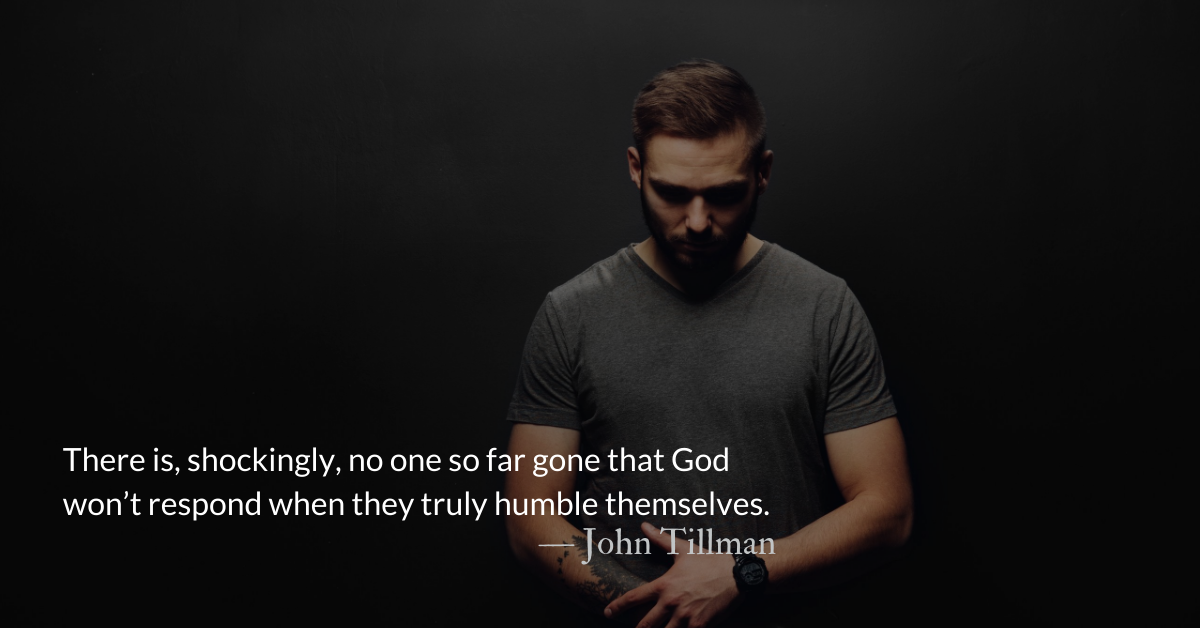Scripture Focus: 1 Kings 21.20-21, 25-29
20 Ahab said to Elijah, “So you have found me, my enemy!”
“I have found you,” he answered, “because you have sold yourself to do evil in the eyes of the Lord. 21 He says, ‘I am going to bring disaster on you. I will wipe out your descendants and cut off from Ahab every last male in Israel—slave or free.
25 (There was never anyone like Ahab, who sold himself to do evil in the eyes of the Lord, urged on by Jezebel his wife. 26 He behaved in the vilest manner by going after idols, like the Amorites the Lord drove out before Israel.)
27 When Ahab heard these words, he tore his clothes, put on sackcloth and fasted. He lay in sackcloth and went around meekly.
28 Then the word of the Lord came to Elijah the Tishbite: 29 “Have you noticed how Ahab has humbled himself before me? Because he has humbled himself, I will not bring this disaster in his day, but I will bring it on his house in the days of his son.”
Reflection: Ahab and David
By John Tillman
David is the prototypical king to whom Judah’s kings are compared. Israel’s kings will be compared to Ahab. Ahab’s murder of Naboth has some interesting parallels to David and the murder of Uriah:
The king sees something that he wants near his palace.
What the king wants is a violation of the commands of God. (Naboth appealed to Moses’ command not to sell one’s inheritance: Leviticus 25.23.)
Conspirators are recruited by letter.
A loyal citizen is killed by treachery and the crime is covered up.
The king swoops in to take possession of the object of his lust.
The king does all this when he has plenty of vineyards (in David’s case, plenty of wives) of his own.
God sends a prophet to confront the king with his crime and pronounce a harsh judgment. (David’s child will die. Ahab and all his children will die.)
The king repents and mourns in humility, wearing sackcloth and fasting.
Both men receive a measure of mercy from God, and both men suffer a judgment from God that is not removed.
In David’s case, the child conceived with Bathsheba dies, but David does not. (1 Samuel 12.13)
In Ahab’s case, the only mercy from the Lord is that the utter destruction of Ahab’s family will happen after Ahab himself dies. Ahab doesn’t truly seem to have fully repented (He later condemns Micaiah to punishment for prophesying his death) and perhaps this is why the mercy he receives is quite limited.
Ahab has moments in which he seems to show remorse or to acknowledge God, but they are few. He knows God’s true prophets by name, but holds some of them in prison, such as Micaiah. Rather than the friendly relationship David had with God and his prophets, Ahab considers Elijah his “enemy.”
Ahab and Jezebel are, to this day, synonymous with evil rulers. Yet even Ahab, the wickedest of wicked kings, obtained a measure of mercy from God when he showed humility and grief.
There is, shockingly, no one so far gone that God won’t respond when they truly humble themselves. There is no one so evil God can’t forgive. There is no one so wicked that there is no hope.
God can break through and will have mercy whenever there is true repentance. Persevere in sharing the gospel with the strength and boldness of Elijah, Micaiah, and Elisha.
Divine Hours Prayer: The Greeting
Show me your ways, O Lord, and teach me your paths.
Lead me in your truth and teach me, for you are the God of my salvation; in you have I trusted all the day long. — Psalm 25.3-4
– From The Divine Hours: Prayers for Summertime by Phyllis Tickle.
Today’s Readings
1 Kings 21 (Listen – 4:19)
1 Thessalonians 4 (Listen – 2:24)
Read more about More and More and Less and Less :: Guided Prayer
Give us more and less, Father…
More of Christ’s love for others less of our love of self.
Read more about Incomparable King and Kingdom
Many wicked kings will be compared to Jeroboam until Ahab takes his place as the most wicked king.






